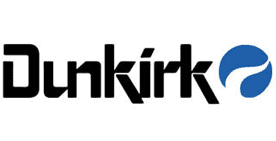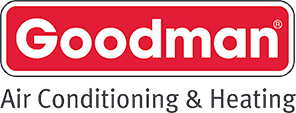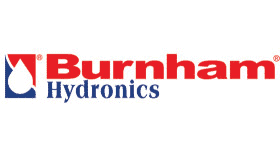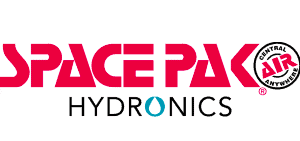Your central forced-air furnace and air conditioning systems utilize an air filter that needs to be changed out on a regular basis. Experts recommend changing out your filter every few months to keep your indoor air quality high. However, is it really necessary to change your air filter regularly? The answer is a resounding yes! How often is another question, however. It’s going to be a combination of your home habits and lifestyle, the type of filter you’re using, and plenty more that our team at Leith Heating & Cooling can help you consider.
The bottom line is that your filter simply must be changed (or cleaned, if you have reusable filters) on an ongoing schedule for good indoor air quality and the efficiency your HVAC system is designed to achieve.
What Does My HVAC System’s Air Filter Do?
Your HVAC system’s air filter is probably tucked away in a basement or attic, wherever your system is located. It may also be in a ceiling or wall in a hallway, or at the entrance of the return air duct in the event you have a high-efficiency media air cleaner. Regardless of where the filter is located, it performs a very, very important job any time you are heating or cooling your home.
As air is pulled into your ductwork, it gets pulled through the air filter. The filter collects loose particles, dust, debris, and unwanted pollutants from your air. This results in cleaner air being circulated back out into your home. Essentially, your filter is a protective layer that works to enhance the level of the indoor air that you breathe. When you have cleaner air inside of your home, you’ll experience a reduced number of allergy flare-ups, respiratory issues, and other poor air quality-related issues. It also helps keep dust and debris out of your HVAC system which can cause lots of problems and even result in costly repairs.
Is My Air Filter Bad?
While experts recommend replacing your air filter quarterly, that’s not always an accurate suggestion for everyone. Those who have lots of pets or respiratory issues should consider replacing their filter more often. Knowing when your filter has reached the end of its lifespan can allow you to judge more accurately when it needs to be replaced.
To check if your filter is in need of replacement, you’ll want to start by pulling it out of the filter housing. Hold the filter up to a light and look through it. If the filter is still good, you’ll be able to see through it. If the filter has reached the end of its life, you won’t be able to see through it. If you still aren’t sure, more often than not often enough is the rule to abide by. If you schedule preventative maintenance for your HVAC system with Leith Heating & Cooling, we’re more than glad to help you establish a good schedule to replace your filter, and can do so for you every time we’re over for a tune-up!
What Types of Air Filters are There?
Before replacing your AC filter, you’ll want to know what type of filter to replace it with. There are all kinds of shapes, sizes, thicknesses, and other variables when it comes to filters. Your manufacturer-provided system manual likely has a recommended size and style of filter. In addition, you can look at the filter currently in use. It should display a model number that, after a quick internet search, should tell you what type and size is in your system right now.
There are four main filter options available. include pleated, HEPA, reusable, and fiberglass filters. HEPA filters offer the highest filtering capability but are uncommon in residential HVAC systems. Fiberglass filters are the cheapest option with the lowest filtering capacity of the bunch. Reusable filters are made to be easily washed and put back into the filter housing. These are more expensive to purchase but can be reused multiple times with a little elbow grease.
In addition to the filtration capabilities, talk to your HVAC professional about whether a higher quality filter would cause strain on the intake of the system; while filters that catch more can stop particulates, they may also clog faster, causing wear on your heater or air conditioner.
What Happens if I Don’t Change My Filter?
Whenever you lapse on changing your air filter when it’s fully clogged with pollutants and other debris, it can cause a number of issues with your system. First, your air conditioning system and furnace will have to work much harder to force air through the filter if it’s blocked by all the built-up debris. This means more wear and tear on your equipment coupled with higher energy bills.
When the air can’t freely circulate through your air conditioning system and into your ductwork because of a clogged air filter, you won’t get any cold air out of your system. You’ll hear your air conditioning system constantly running to cool down your home to no avail, and the reverse in the winters with your furnace.
Another common issue that homeowners face when they have a clogged air filter is frozen evaporator coils. For your air conditioning system to remove the heat from the air inside of your home, the warm air needs to flow over the evaporator coils. When you have a clogged air filter, the warm air can’t reach the evaporator coils. As a result, the evaporator coils freeze up.
Apart from ruining your air conditioning system, not changing your system’s air filter can be harmful to your health. If your filter is so clogged that air must go around it, this means that you’ll be breathing in all those harmful particles. If you have severe allergies or an upper respiratory problem, it’s even more important to change your filter on a regular basis.
Your Local HVAC Pros
If you need more assistance figuring out what type of filter is best for your air conditioner or when to change it, you can always count on our crew at Leith Heating & Cooling. For many years, we’ve been the local HVAC team of choice here in Elgin and the surrounding areas.
Simply give our knowledgeable technicians a call today to get the assistance that you need!











